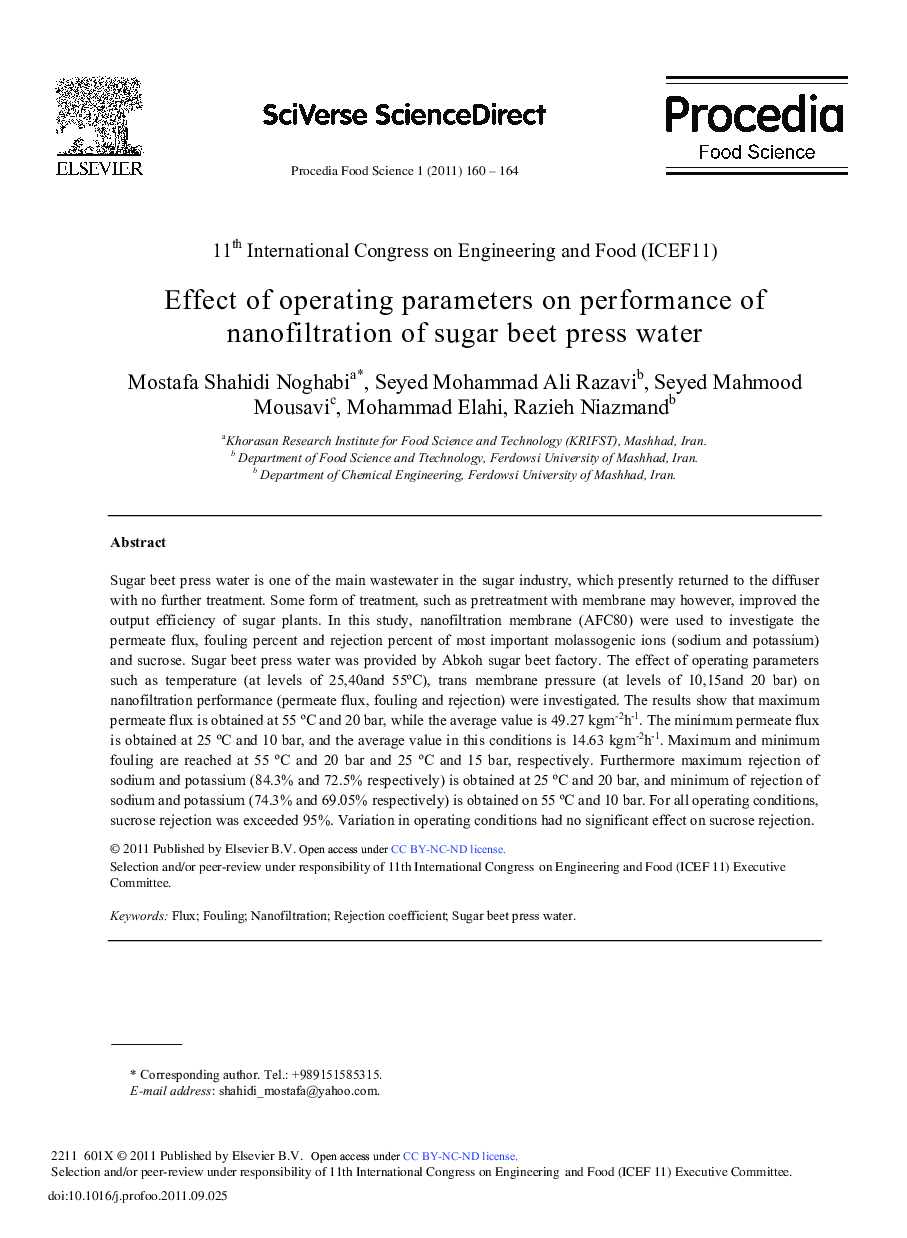| Article ID | Journal | Published Year | Pages | File Type |
|---|---|---|---|---|
| 1264933 | Procedia Food Science | 2011 | 5 Pages |
Sugar beet press water is one of the main wastewater in the sugar industry, which presently returned to the diffuser with no further treatment. Some form of treatment, such as pretreatment with membrane may however, improved the output efficiency of sugar plants. In this study, nanofiltration membrane (AFC80) were used to investigate the permeate flux, fouling percent and rejection percent of most important molassogenic ions (sodium and potassium) and sucrose. Sugar beet press water was provided by Abkoh sugar beet factory. The effect of operating parameters such as temperature (at levels of 25,40and 55 °C), trans membrane pressure (at levels of 10,15and 20 bar) on nanofiltration performance (permeate flux, fouling and rejection) were investigated. The results show that maximum permeate flux is obtained at 55 °C and 20 bar, while the average value is 49.27 kgm-2h-1. The minimum permeate flux is obtained at 25 °C and 10 bar, and the average value in this conditions is 14.63 kgm-2h-1. Maximum and minimum fouling are reached at 55 °C and 20 bar and 25 °C and 15 bar, respectively. Furthermore maximum rejection of sodium and potassium (84.3% and 72.5% respectively) is obtained at 25 °C and 20 bar, and minimum of rejection of sodium and potassium (74.3% and 69.05% respectively) is obtained on 55 °C and 10 bar. For all operating conditions, sucrose rejection was exceeded 95%. Variation in operating conditions had no significant effect on sucrose rejection.
